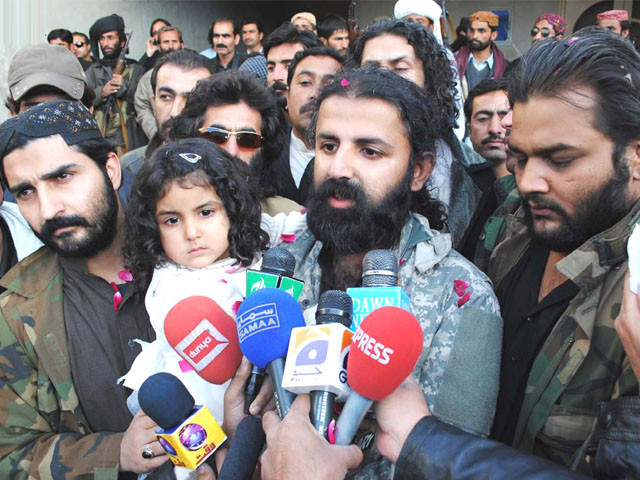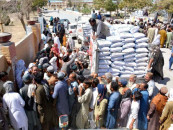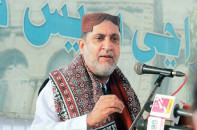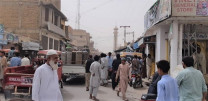Balochistan crisis: ‘Unrest created by Pakistan, not India’
Shahzain Bugti offers eight-point agenda to eliminate trust deficit.

Talking to the media at Jamia Naeemia, Shahzain said that the government should bring forward proof against Indian actors before “reiterating India’s involvement again and again like a parrot.”
The JWP leader went on to present an eight-point agenda to eliminate the trust deficit between Islamabad and Balochistan, adding that no All Parties Conference on Balochistan or government package should be discussed before such a move, as the government could regain the trust of the Baloch people within 72 hours.
The eight-point agenda included demands such as the arrest of former president Pervez Musharraf in the Akbar Bugti murder case; an end to the military operation in Balochistan; the abolishment of controversial security posts from Balochistan; an end to the killing of innocent people; tracking down the missing persons of Balochistan; an end to the role of intelligence agencies in Balochistan; immunity for any Baloch being prevented from returning to their homes by intelligence agencies and the arrest of those intelligence agency officials who carried out the attack on Barahmdagh Bugti’s sister and niece on January 31 in Karachi.
Responding to a question, Shahzain said his party had already rejected the ‘so-called’ Balochistan package announced by the federal government, adding that the premier had lied in stating that 80% of the package had been implemented.
He went on to add that no Baloch was involved in the killing of Punjabis in the province, adding that even though an official of the intelligence agencies was arrested for attacking a Punjabi professor, officials of the Frontier Corps had him released.
When asked about elections in Balochistan, Shahzain said that the environment for fair elections did not exist in the province, adding that the role of agencies had to be curtailed before free elections could take place in Balochistan. Jamia Naeemia head Dr Raghib Naeemi welcomed Bugti at his seminary. He said he had invited Bugti to express solidarity with the Baloch in these trying times.
Published in The Express Tribune, February 24th, 2012.



















COMMENTS
Comments are moderated and generally will be posted if they are on-topic and not abusive.
For more information, please see our Comments FAQ